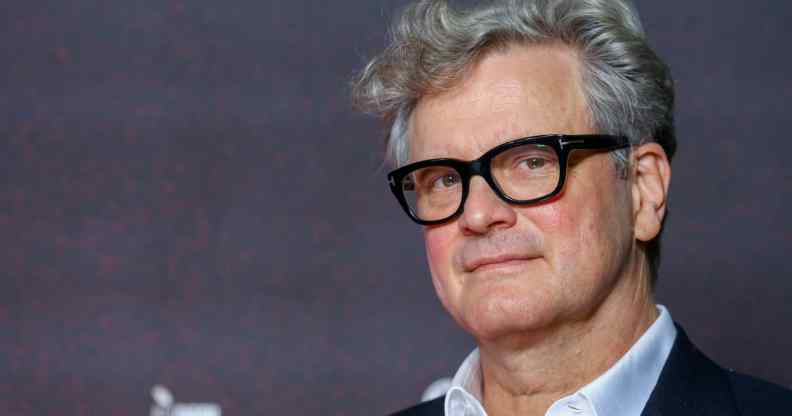Colin Firth doesn’t know if it’s right for him to play gay roles: ‘It’s something I take really seriously’

Colin Firth at the “Supernova” premiere in London on October 11, 2020 (Tim P Whitby/Getty/BFI)
Colin Firth has declined to weigh in on whether straight actors should be able to play gay roles, admitting it’s something he’s given “a lot of thought”.
Firth plays a gay man in his upcoming film Supernova, a tearjerker about a couple who embark on a road trip as one of them grapples with dementia. He also took on a gay role in in 2010’s A Single Man.
The actor was questioned on whether it was right for him to do so in an interview for December’s issue of Attitude, but said he remained undecided.
“I don’t have a final position on this,” he replied. “I think the question is still alive. It’s something I take really seriously, and I gave it a lot of thought before doing this.”
He continued: “Whenever I take on anything, I think it’s an insufferable presumption. I don’t really feel I have the right to play the character. That’s always the starting point. What do I know about this person’s life?
“How can I presume to set foot in this person’s lived experience, let alone try to represent it?”
His Supernova co-star Stanley Tucci, who also played a gay character in The Devil Wears Prada, added: “For so many years, gay men and women have had to hide their homosexuality in showbusiness to get the roles they wanted – that’s the problem here.
“Anybody should be able to play any role that they want to play – that’s the whole point of acting.”
Unfortunately, the question of whether straight actors should play gay characters is likely to remain an issue while access to film roles continues to be unequal across the board.
A recent GLAAD report found that although representation of white gay men is constantly improving in major studio films, representation of other queer people is dismal, and trans and non-binary characters were found to be non-existent in major studio releases from 2019.
An analysis of 118 films across eight major studios found that only 22 (18.6 per cent) included an LGBT+ character, and only nine gave LGBT+ characters more than 10 minutes of screen time.
When those few roles are given to straight actors rather than LGBT+ ones, it throws up an additional barrier to queer people being able to tell their own stories on the big screen.

